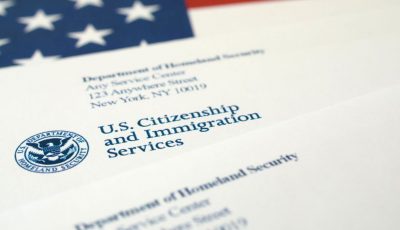Workers accuse Dynasty of lying about their status
Over 500 current and former foreign workers at Tinian Dynasty Hotel and Casino are accusing the owner and management of lying to them about their immigration status by falsely claiming they were legally authorized to work despite the denial of their CNMI-only Transitional Worker (CW-1) petitions.
The workers, through counsel Samuel Mok, has filed a lawsuit in federal court against Tinian Dynasty’s owner Hong Kong Entertainment (Overseas) Investments Ltd. and majority shareholder Mega Stars Overseas Limited.
The workers are suing HKE and Mega Stars for fraudulent concealment. In addition, they are suing HKE for negligent misrepresentation and for wrongful termination in violation of public policy.
Saipan Tribune tried but failed to obtain comments from Tinian Dynasty’s counsel.
The plaintiffs are Eric F. Dona, Donny Rivera, Melinda Rivera, Chung-Liang Chiu, Shingo Kajiwara, Shao Han, Lorenzo Pacia III, Didith Pacia, Ming Yang Yuan, Chuan Hui Xu, Flordeliza F. Camiguing, Jovelyn F. Reyes, Richard Julio L. Reyes, and Ernest Y. Rivera. The 500 workers are unnamed co-plaintiffs in the lawsuit. Most of the plaintiffs have U.S. citizen children.
Mok asked the U.S. District Court for the NMI to prevent HKE and Mega Stars from terminating the plaintiffs or removing their name from an administrative appeal.
Mok also asked the court to stop the defendants from forcing the plaintiffs to work in contravention of the law.
The lawyer wants the court to declare that HKE’s statement—that it was legally permissible for the plaintiffs to continue working even though U.S. Citizenship and Immigration Services had denied their CW-1 petitions—was false.
The plaintiffs are demanding unspecified damages, court costs, and attorney’s fees.
Mok stated in the complaint that HKE and Mega Stars knew at least 18 months before Dec. 8, 2014—when USCIS denied the CW-1 petitions—that their respective CW-1 employment petitions were in jeopardy of being denied due to several warnings issued by the USCIS in the form of notices of intent to deny and notices of intent to revoke.
However, Mok said, HKE and Mega Stars deliberately withheld this information from the workers out of fear they would stop working and transfer to new employers, which would have shut down business operations and ultimately cost Tinian Dynasty a significant amount of money.
Mok said the defendants also lied to workers about their legal status by falsely claiming they were all legally authorized to work despite USCIS’ denial of their CW-1 petitions.
Mok said it was the defendants’ self-interest to keep the Tinian Dynasty fully staffed during a particularly critical period of time where HKE was seeking to sublease its gaming and hotel interests to a foreign corporation called “Gain Millenia Limited.”
The lawyer said HKE falsely told workers via letter dated Jan. 19, 2015, that USCIS regulations allowed employees with denied CW-1 petitions to continue working so long as an administrative appeal was pending.
“At the time of this statement, HKE knew that federal immigration regulations prohibited a CW-1 worker from continuing employment once his/her CW-1 petition was formally denied,” Mok said.
He said HKE threatened to terminate any worker who failed to report to work by Jan. 21, 2015, based on the disingenuous premise that working without legal authorization was “not lawful.”
Mok said according to the Jan. 19 letter, any worker who “disagreed” with HKE’s claim that it was “not lawful” to return to work would be deemed to have “resigned” his or her job.
He said HKE threatened to remove any worker deemed to have “resigned” from the pending administrative appeal filed with the USCIS.
Mok said that, on Jan. 12, 2015, the chairman of Mega Stars sent the workers a letter urging all workers to put their “fears aside” and concentrate on the upcoming baccarat tournament and poker tournament as well as the “very busy Chinese New Year.”
Mok said that, according to Mega Stars, it would be the employer and not the employee who would be subject to criminal punishment if the workers returned to work without legal authorization.
“Defendants’ utter indifference to the human cost of their unlawful conduct is highly unfortunate given the fact plaintiffs are members of the Tinian community who have friends on Tinian, attend Tinian churches and have children enrolled in Tinian schools,” he said.
Over 500 foreign workers at Tinian Dynasty filed last December a separate lawsuit in federal court against Homeland Security Secretary Jeh Johnson and other federal officials over the USCIS denial of the company’s 197 CW-1 petitions involving 693 beneficiaries. Attorney Bruce Berline is representing the workers in the lawsuit.
Last December, HKE and its president and board chairman Kwan Man, through counsel Berline, have filed a lawsuit in federal court against U.S. Department of Labor Secretary Thomas E. Perez and other federal Labor officials for allegedly violating their due process right over their assessment of civil penalties of $191,400 for violating the overtime provisions of the Fair Labor Standards Act.



























